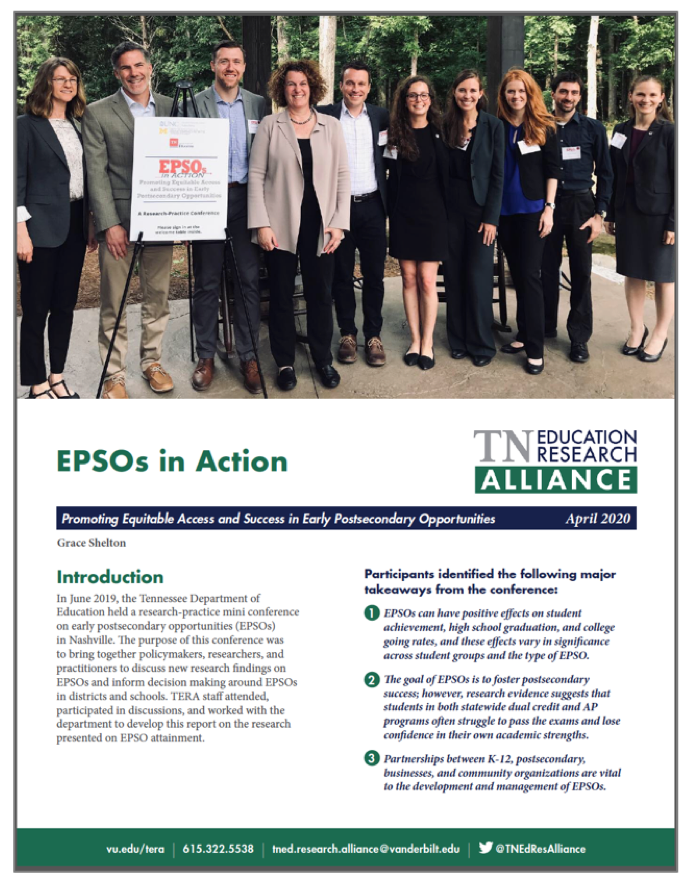In 2019, the Tennessee Department of Education held a research-practice mini-conference on early postsecondary opportunities (EPSOs). The purpose of this conference was to bring together policymakers, researchers, and practitioners to discuss new research findings on EPSOs and inform decision making around EPSOs in districts and schools. This brief discusses the major takeaways from the event, including thoughts from researchers, policymakers, and practitioners.
Conference Takeaways
- EPSOs can have positive effects on student achievement, high school graduation, and college going rates, and these effects vary across student groups and the type of EPSO.
- The goal of EPSOs is to foster postsecondary success, however, research evidence suggests that students in both dual credit and AP programs often struggle to pass the dual credit exams and lose confidence in their own academic strength.
- Partnerships between K-12, postsecondary, business, and community organizations are vital to the development and management of EPSOs
Video Recordings of Research Sessions
- Research on the Advanced Placement Program
- Assessing Student Outcomes: Attaining Equity & Access in CTE Concentrations & Certificates
- EPSOs In Action: Promoting Equitable Access and Success in Dual Enrollment
- Dual-Credit Courses in Tennessee: Access, Participation, and the Road to College
Related Content
- Webpage - The Tennessee Department of Education: Early Postsecondary Opportunities
- Paper - The Effect of Advanced Placement Science on Students' Skills, Confidence, and Stress
- Paper - Life on the Frontier of AP Expansion: Can Schools in Less-Resourced Communities Successfully Implement Advanced Placement Science Courses?
- Paper - The Effect of Career and Technical Education on Human Capital Accumulation: Causal Evidence from Massachusetts
- Working Paper - Dual-Credit Courses and the Road to College: Experimental Evidence from Tennessee
